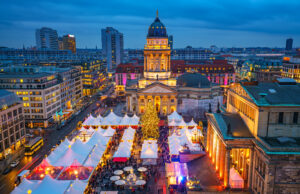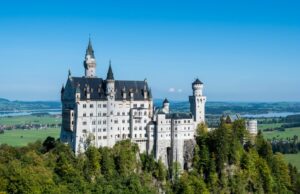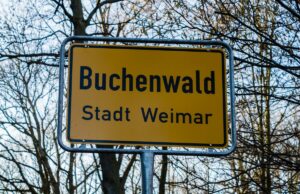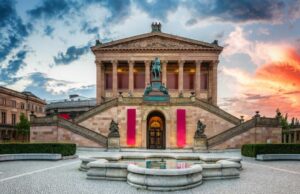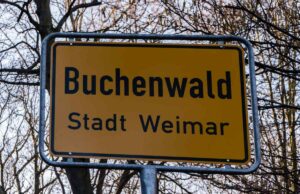
Holland is located in the state of Michigan and has a lot of culture to offer as well as great sights and interesting destinations. So if you’re planning a trip to Holland, you’ve come to the right place!
Here you can find different housings and hotels around Holland
Just type in your destination and get many different suggestions.
Vacation in Holland
If you’re looking for a vacation that’s full of fun and excitement, then look no further than Holland, Michigan! This charming city is located on the shores of Lake Michigan and is home to a variety of unique attractions. From its quaint Dutchthemed downtown to its beautiful beaches, there’s something for everyone in Holland.
One of the best things to do in Holland is explore its downtown area. Here you’ll find a variety of shops and restaurants, as well as a number of historic buildings. Be sure to visit the Windmill Island Gardens, where you can see a working Dutch windmill. For a bit of history, check out the Cappon House Museum, which is the oldest house in Holland.
If you’re looking for a place to relax, Holland’s beaches are the perfect spot. The city’s North Beach is a great place to sunbathe, swim, or just enjoy the stunning views. For a more active beach experience, head to Rosy Mound Natural Area where you can go hiking, biking, or even horseback riding along the scenic trails.
No matter what type of vacation you’re looking for, you’re sure to find it in Holland, Michigan!
Sights in Holland
Holland is a city in Ottawa County in the U.S. state of Michigan. The population was 33,051 at the 2010 census, and was estimated to be 34,462 in 2019. It is the largest city in Ottawa County. Holland is the main cultural center of Dutch Americans in the United States. Most of the residents descended from Dutch immigrants who arrived in the mid to late 19th century. The city has close ties to both the Dutch and the American cultures, with many residents speaking both English and Dutch. The city is home to the campus of Hope College, and to the Reformed Church in America’s Western Theological Seminary. Holland’s downtown is listed on the National Register of Historic Places.
The downtown area is nationally recognized for its abundance of Dutchstyle architecture. The city is also home to the Windmill Island Gardens, which includes the De Zwaan, an original Dutch windmill brought to the US in 1964. The gardens also include a replica of a Dutch village. The Holland Museum contains exhibits about the city’s history and about Dutch art, culture, and history.
Holland’sFiletoFish was introduced in 1957. The city is also home to the World’s Largest Cuckoo Clock, which is located on top of a building downtown.
Each year, the city celebrates Tulip Time, a festival that commemorates the city’s Dutch heritage. During the festival, which is held in May, over five million tulips are in bloom throughout the city. The festival includes a parade, musical performances, and Dutch dance performances.
History of Holland
Holland is a city in the western region of the Lower Peninsula of Michigan in the United States. The city is situated near the eastern shore of Lake Michigan on Holland’s Eastside. A small portion of the city extends into Ottawa County to the north. The 2010 census recorded the city’s population at 33,051, with an estimated 4,858 people living in the surrounding township. Allendale Charter Township is north of the unincorporated community of Blendon, which is also part of the city.Holland was founded by Dutch Calvinist separatists in 1847, inspired by the Secession of 1834 in the Netherlands. The city was named after the European city of Holland, Netherlands. The leading citizens of the new community were Dutch Calvinist separatists who had settled in the village of Overholland, North Brabant, Netherlands, prior to emigrating. Several of them had come to appreciably wealth in the United States; for instance, Isaac Cappon was the first agent for the Holland Land Company and owned considerable acreage in western New York. Despite their wealth and education, they were subject to religious persecution in part because they would not swear allegiance to any government not headed by the House of Orange, and also because of their opposition to infant baptism. They were forced to flee to the United States in the 1840s. Many of the original settlers of Holland were from the Zuyder Zee region of the Netherlands, settling along the south bank of Macatawa Bay, which gave rise to the term “Dutchtown” or “Little Dutch” to refer to the settlement.
The first settlers of Holland arrived in October 1847. They came to live on a tract of land that was purchased from the federal government for $1.25 per acre. The first group of settlers consisted of eight families. In 1848, the settlers purchased additional land from the government. The community was able to incorporate as a village in 1855 and as a city in 1867.
The city of Holland is located about 30 miles east of Grand Rapids and about 50 miles southwest of the state capital of Lansing. It is situated near the eastern shore of Lake Michigan. The community is part of the Dutch Shoreline area of lakeshore in Ottawa and Allegan counties in Michigan.
The city was originally built on lowlying dunes along the shores of Lake Michigan. The first settlers built their homes on these dunes. As the city has grown, it has expanded inland away from the lake. However, the city still has many parks and public beaches along the lake shore.
The city is home to two public high schools, Holland High School and West Ottawa High School. Both high schools are members of the Ottawa Area Intermediate School District. The city is also home to several private schools, including Holland Christian Schools and Black River Public Schools.
Holland is the site of Tulip Time, an annual festival held in early May that celebrates the city’s Dutch heritage. The festival features parades, Dutch dancing, music, and food. More than half a million people visit Holland during Tulip Time.
The city is also home to the Windmill Island Gardens, a 36acre park that features a working Dutch windmill,acres of tulip gardens, and a Dutchthemed carousel. The park is open to the public from April through October.
Holland is known for its annual Tulip Time Festival, when over five million tulips bloom throughout the city. The festival, which began in 1929, celebrates the city’s Dutch heritage. During the festival, parades, Dutch dancing, and music fill the streets. Tulip Time draws over 500,000 visitors to the city each year.
Holland is also home to the Holland Museum, which houses a collection of artifacts and exhibits on the city’s history and Dutch culture. The museum is located in the former City Hall building, which was constructed in 1894.
The Holland Civic Center, located in the city’s downtown, is a multipurpose facility that hosts conventions, sporting events, and other entertainment. The center contains an arena, theater, and meeting rooms.
The city of Holland has a sister city relationship with Haarlem, Netherlands. The relationship is commemorated with a statue of a windmill, which was a gift from Haarlem, that stands in Centennial Park.
Other vacation destinations in the United States:







